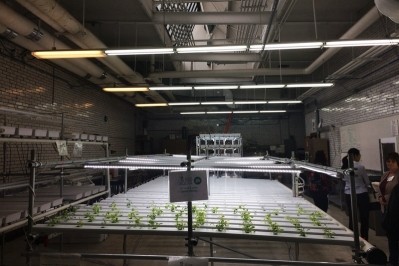Trust in nutritional science ‘deflating’, claim Dutch scientists

In an editorial featured in the European Journal of Nutrition, the scientists lament at the general phenomenon surrounding the scientific community that sees trust in its research “deflate.”
Its impact, they say is particularly felt in nutrition science because of the crucial role of nutrition in everyday life.
Along with nutritionists, the Dutch collective heeds calls made by medical doctors, philosophers and sociologists of science that claim nutritional research has simply not kept up with the times,
The team believe research findings neglect major societal challenges, such as an ageing population and the increasing burden of non-communicable diseases require real-world health insights.
“The mismatch imposes limits to the capability of nutrition science to contribute to real-world health,” the editorial said.
“This capability is restricted in at least three ways: by the questions we pursue, by the technical and methodological characteristics of our approach, and by the organisation of nutrition science.”
Ask the right questions
The questions, the team said were now very different for the next ten years. New challenges lay in designing personalised, public health nutrition strategies, and providing healthy and safe diets.
This means methods in nutrition science need to change. Commenting on current methods, in particular, the effectiveness of the randomised control trial (RCT), the team said it was is difficult to transfer such trial outcomes to diets and food patterns in daily life.
“Foods differs according to region and climate, while dietary habits and meal patterns shift per week, month, season, and food availability. Questions elicited by this real-life picture cannot be explored in the artificial environment of the RCT.
“Nutrition science needs to actively seek and embrace the addition of new, innovative concepts to study the effects of nutrition on health maintenance and disease prevention in real life, in collaboration with other relevant disciplines.”
Such recommendations include quasi-experimental studies and n-of-1 trials ranging from existing strategies such as intervention mapping to more experimental participatory intervention designs.
The science’s relevance
Also called into question is the relevance of nutrition science as the scientists shift their concern towards the information available to the public.
The fear is few individuals would really perceive and experience the benefits of choosing their food according to the state of the art of nutrition science.
“What grasps the public eye are often oversimplified statements about what is or is not healthy,” they said. “These results in confusion among lay persons about what they can and cannot ‘believe’.”
“More nuanced or not readily applicable knowledge from nutrition scientists, if communicable and communicated at all, is not often well perceived.”
The team pointed out that while the public had an interest in such matters, the “steady stream of diets, culinary books, cooking programs, and nutrition theories from self-appointed experts” were taking precedence.
Viscous circle
As a result, a viscous circle is formed as the way nutrition science is funded and organised meant research institutes increasingly look to score with high profile, high impact publications and with ‘simple’ messages that attract media attention.
“Breaking free from this vicious cycle requires reciprocity and inclusiveness, the team said. “We can reach out to non-academics, ranging from breeders to patient and consumer organisations, as legitimate research collaborators.
“Reciprocal and inclusive research carries consequences for how we design that research, and for how we translate its results for the benefit of society.”
In addition, the team proposed to focus on real eating practices, explicating health values of participants, and engage participants in articulating their values as well as common health outcomes
“Accordingly, the reinvention of nutrition science is a real-world experiment in which traditional nutritional experts share their spot at the helm,” they concluded.
Source: European Journal of Nutrition
Published online ahead of print: DOI 10.1007/s00394-017-1507-y
“Capable and credible? Challenging nutrition science”
Authors: Bart Penders et al








